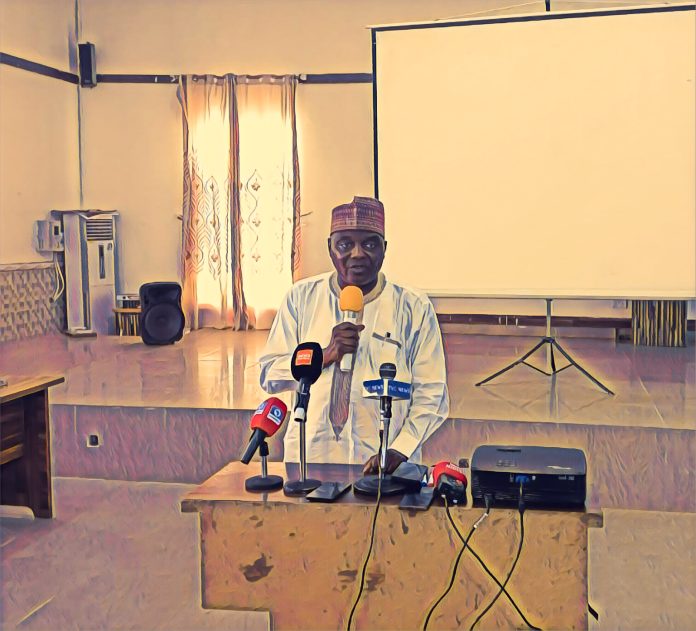KEY POINTS
- Yobe State seeks to achieve 80 percent vaccination coverage by 2026 as a way to prevent disease spread while building immunity within the community.
- The Yobe state has identified Gulani and Geidam LGAs as high-risk because they contain 17.5 percent of zero-dose children throughout the entire state.
- The Big Catch-Up initiative receives support from both UNICEF and Borno State to execute local strategies that prevent children from falling behind.
The Yobe State Government has declared a goal to reach 80 percent vaccination coverage by 2026 to combat vaccine-preventable disease spread and eliminate immunisation gaps.
Dr. Mohammed Gana made this statement on Tuesday at the World Immunisation Day 2025 event in Damaturu through his role as the state Commissioner for Health.
State health official Dr. Mohammed Gana documented numerous diphtheria and cerebrospinal meningitis outbreaks together with cholera outbreaks and instances of vaccine-derived poliovirus because insufficient vaccination protected only small segments of the communities.
Herd immunity requires reaching 80 percent vaccination coverage by next year so our communities remain protected according to Gana while he stressed that immunization sessions must not be missed by health workers.
Zero dose children and high-risk LGAs under focus
According to Gana vaccination rates registered a moderate improvement in overall national statistics between 2018 and 2023. The health worker had reservations about children who still have not gotten routine vaccinations due to being zero-dose.
According to Dr. Umar Chiroma who directs the Disease Control and Immunisation program at Yobe State Primary Health Care Management Board the percentage of unvaccinated children in the state stands at 17.5 percent. The national investigation has marked Gulani and Geidam local government areas among areas with no recorded vaccinations.
The state continues working toward vaccinating children by incorporating immunizations into their basic health care services to reach harder-to-access locations.
Borno and UNICEF join efforts to reduce zero-dose rates through vaccination coverage by 2026
The Borno State’s Primary Health Care Agency through their Immunisation Officer Maina Modu continues working to minimize zero-dose children across Borno. Programs conducting outreach efforts focus on administering vaccinations at transit points to reach the children who previously avoided previous vaccination rounds.
“Borno and other organizations follow a Big Catch-Up strategy to create personalized responses for different communities through these initiatives,” Modu explained.
According to Bashir Elegbede of UNICEF the global vaccination targets require Nigeria to decrease zero-dose child numbers to 25 percent by 2025 and 50 percent by 2030.
To promote vaccine accessibility for all Elegbede asked for improved partnerships among every government institution alongside traditional leadership and health staff and assistance from development organizations.



